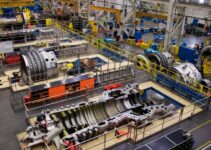Coca-Cola is a carbonated soft drink manufacturing American multinational company. Asa Griggs Candler founded the soft drink manufacturing in 1892; the soft drink brand is operating its business in over 200 countries across the globe. Today, we’ll discuss the supply chain analysis of Coca-Cola; it focuses on various SCM elements like procurement planning, inventory management, warehousing, automation, transportation, and distribution.
Supply Chain Analysis of Coca-Cola
Let’s discuss the main elements of the supply chain analysis of Coca-Cola are as follows;
Suppliers Segmentation
Coca-Cola has a very large network of suppliers and partners and they play a key role in the growth and success of the soft drink brand. The performance of suppliers directly affects the growth and progress of the company. According to an estimate, Coca-Cola has approximately 13200 suppliers; out of which, 57% of the primary packaging suppliers and 43% of the ingredient suppliers. The soft drink brand has divided its suppliers into the following categories;
I-Critical Group Suppliers
Group critical suppliers should satisfy any of the following criteria; high spending, limited partnerships, and alternatives. They provide supplies and components like cold drink equipment, packaging, aseptic packaging, closures, performs, glasses, cans, resin, juices, and sweeteners.
II-Country Strategic Suppliers
They have a great worth and value in the specific region and country. They are highly significant to the soft drink brand and they play a critical role in the growth and success of the company.
III-Tactical Suppliers
Tactical suppliers are low-spending and low-volume suppliers. They have the availability of multiple sources and they provide products and services for the flexible supply chain.
Evaluation of Suppliers
Coca-Cola has a quick and robust system to carefully evaluate the performance of suppliers. Environmental sustainability and sourcing are one of the main criteria for the selection of suppliers. In order to analyze the performance of suppliers, the soft drink brand has set up various screening and evaluation procedures and systems. However, some of the main supplier evaluation tools the soft drink brand employs are as follows;
- Supply Based Assessment
- SEDEX
- EcoVadis Assessments
- EcoVadis IQ Plus
- Moody Analytics
- Exiger
- Resilinc Event Watch
- WWF Water Risk Filter Assessment
Renewable Energy & Sustainability
Coca-Cola has made a strong commitment to reach net zero carbon emissions by 2040. It means achieving sustainability in all of the supply chain processes ranging from warehousing, production and manufacturing plans, logistics, and transportation by finding innovative processes. The soft drink brand is collaborating with its suppliers and 3rd party partners to decrease the carbon footprint to approximately 90%.
The 2025 sustainability mission of the company comprises decreasing the energy consumption that is causing carbon emissions. Coca-Cola is implementing innovative solutions and shifting its focus towards renewable sources of energy in the energy sector.
Advanced Planning
Coca-Cola employs advanced planning tools and systems to analyze data from various markets in real-time, coordinate from various countries, and remotely work from multiple locations. It analyzes and evaluates performance, and measures and evaluates various supply chain trends and patterns.
The soft drink brand has also invested a significant amount of resources in inventory management and optimization tools. It allows the company to manage supply chain risks due to demand volatility, changing customer market trends and expectations, and economic uncertainty. However, increasing inventory in multiple stages leads the company to employ service level while amplifying the working capital.
The demand forecasting tools and applications employ machine learning and AI technology to amplify the commercial planning processes. The replicability, transparency, and accuracy technology has been improving significantly; it helped the company in improving its tools and capabilities to amplify planning and optimization.
Tech Integration
Coca-Cola is investing a significant amount of capital resources in transforming towards digital technology and digitalizing various supply chain processes. The digitalized supply chain network helps the company to perform its various operations efficiently and effectively for innovative technology. However, the investment in the innovative supply chain network helps the company to increase its tech capabilities by saving water, energy, and resources and improving overall productivity.
Quality Assurance
Coca-Cola puts a great emphasis on production of the quality products and building a safe working environment. It allows the company to earn the trust and confidence of customers. The soft drink brand has earned the following certifications;
- FSSC 22000 for food safety and GFSI
- Health and safety ISO 45000
- Environment ISO 14001
- Quality ISO9001
Production
Coca-Cola has a very large network of production and manufacturing factories and they produce products like carbonated drinks, juices, beverages, waters, and others. They receive raw supplies and materials from various authorized suppliers and vendors.
Conclusion: Coca-Cola Supply Chain Analysis | Coca-Cola Supply Chain Management
After an in-depth study of the supply chain analysis of Coca-Cola; we have realized that Coca-Cola is the world’s leading soft drink manufacturing brand. If you are learning about the Coca-Cola supply chain analysis; then you should keep in mind the abovementioned SCM elements; procurement, planning, transportation, automation, inventory management, and sortation.
Ahsan is an accomplished researcher and has a deep insight in worldly life affairs. He goes Live 3 days a week on various social media platforms. Other than research writing, he’s a very interesting person.


